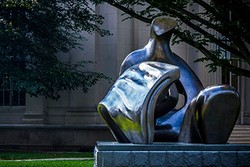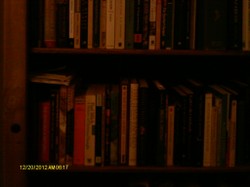Researchers contend that the writer lessens the role of womanhood. Specifically, there are statements over an androcentric appearance. In other words, there is a focus on men, and it leads to a patriarchal society (Oxford, 2019). Such an environment may develop into beliefs that women should be victims of exploitation or enslavement. Mezu has stated that Achebe’s work makes men appear like “everything” where women belong in a category as “nothing.”

Womanhood Focus
Achebe’s Things Fall Apart is well-known for its distribution around the world.
The Question of Exploitation
Other investigators believe that Achebe’s description leaves no sanctuary for women even at home (1). Moreover, these stories seem to give the impression of intimate partner violence. There is also a claim that the book is quite fictional in terms of women. Another issue is the idea that there is exaggeration of men who appear to have more strength than woman do. Coincident with that is the roles of men as heroes which demean the interactions women may want to have. Hence, Okafor would like to know whether interactions between men and women reveal inequalities (1).
Patriarchal Men
The research begins with observation of patriarchal men who participate in the show. One item that arises is the role of men as head of the household. Women sense that an environment of this nature can be offensive to them as they believe they can do things as well. Ladies at the scene view these interactions with contempt. Additionally, women believe that this arrangement violates the idea that they are capable of participation. In Igboland or Africa, there are instances in which women have been assertive especially during pre-colonial and post-colonial Igboland. In fact, they have had rights which are greater than those of Western women. Some Igbo women became kings or warriors. There are records which indicate the success women have had; however, the situation does not change much because of distortion of those records and inability to demonstrate how inappropriate their treatment has been (1).
Achebe comments on the “gender of God.” Chi is a short form of Chinualumogu, and it implies “fight for me.” This may be another example in which there may be male power via the Christian church as well as British Colonial rulers. The truth is, however, that colonial authority has made efforts to eliminate Igbo and African religion. Moreover, Agbasiere has written descriptions of Anglicization of African culture. As recently as 1983, researchers have taken the time to explore the gender of God. One example is the use of “o” in words such as Igbo. This approach may help to lessen these controversies (1).
In any event, there is much information which researchers must know in order to communicate about the languages in Africa and in Igboland. Chi makes one think about energy, spirit, “guiding essence”, and “vector of providence”. Nevertheless, personal gods have descriptions in the masculine. However, communion with chi is a constant procedure. There are also summaries which suggest that such a thing as gender subordination does occur. There is also God of Women which may have something to do with good luck. Despite these dismal observations, there are female Supreme Spirits in Nigeria and other African nations. Female gods serve as Supreme Deity. Another method is that of the Jewish religion, and this view does not include women in the organization of these matters. It is true, however, that women can lead the congregation in prayer, but it will only take place in a church that accepts women. Also, the Earth goddess, Ani, comes from Igbo cosmology. These methods can give the impression that equality can exist in these interactions (1).
Medical Language
There are many terms which describe medical language and issues which relate to gender matters. For example, omumu, has to do with sexuality and being. Okonkwo and his spouse have a romantic relationship, and the term for this is usokwu. Mothering culture refers to usokwu. In due time, Okonkwo experiences rejection from Earth, and it is when he kills the dead man’s son. This is an offense against the Earth goddess. It is manslaughter, or female ochu. Of course, there are words for mother and daughter matters. For example, nwanyi is the term for woman. Man is the same as nwoke. For child, one translation is nwo. Anyi and oke mean nwa-nyiri-anyi. This is a reference to children who are difficult to manage. In any event, women receive power and freedom from Chi. For reference to the first daughter in an Igbo family, one can utilize ada. All daughters in a family, however, constitute umu-ada. Moreover, spiritual ofo has a connection via usokwu. As there are terms to describe gynecology (omumu), biology and child care issues fall under omuru na afo. This term refers to, “a child of her womb.”Either way, these practices enhance nurturing and socialization in children.
Conclusion
Igbo cosmology and womanhood are complex. As with children everywhere, there are difficulties with delivery of a baby. There are problems with intimate partner violence across the globe, and parents have quite a chore to render good care for the siblings. Mbiti has an interesting view about families when he says, “In African societies, the birth of a child is a process which begins long before the child’s arrival in this world and continues long thereafter” (Mbiti, page 107).
Reference
- Okafor, C. Womanhood in Igbo cosmology: Intersections in Achebe’s Things Fall Apart.
- Copyright 2019. Michael Koger, Sr. All rights reserved.
You might also like
SilenceSilence is sometimes a terror, but it is also a source of spiritual inspiration
The Wisdom of Near Death Experiences: a reviewPenny Sartori's book is well researched, informativeand challenging to conven...



 The Reality of Aspirinon 05/24/2021
The Reality of Aspirinon 05/24/2021
 An Old Microbeon 03/31/2021
An Old Microbeon 03/31/2021
 Coronavirus and Mental Illnesson 02/14/2021
Coronavirus and Mental Illnesson 02/14/2021
 Acute Ischemic Strokeon 12/25/2020
Acute Ischemic Strokeon 12/25/2020


Comments